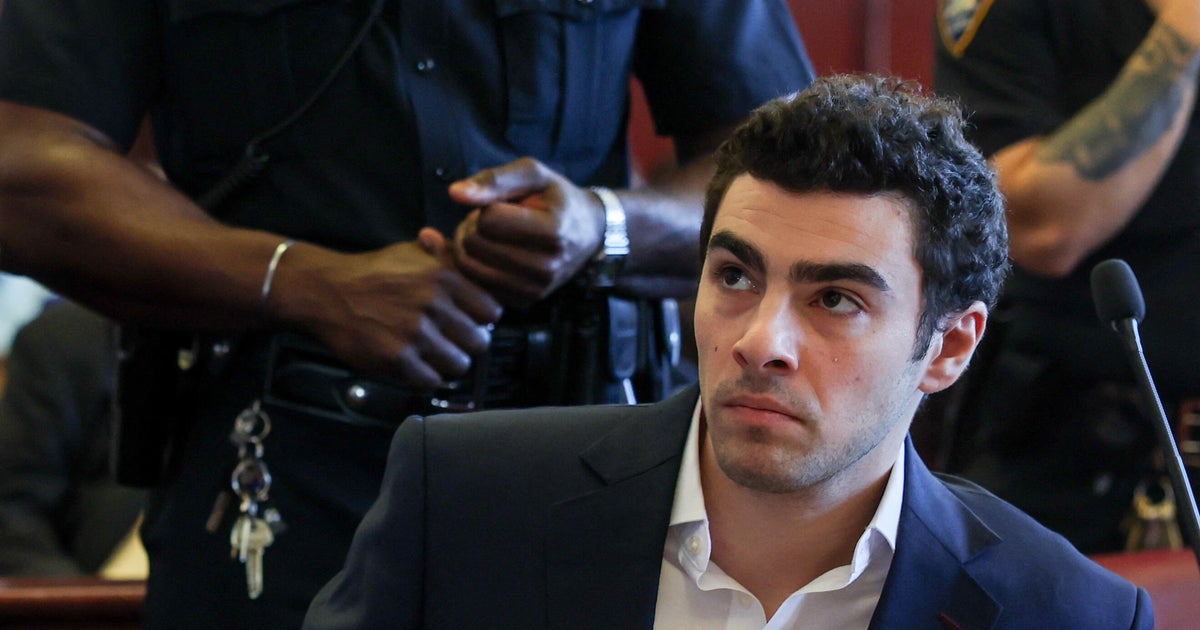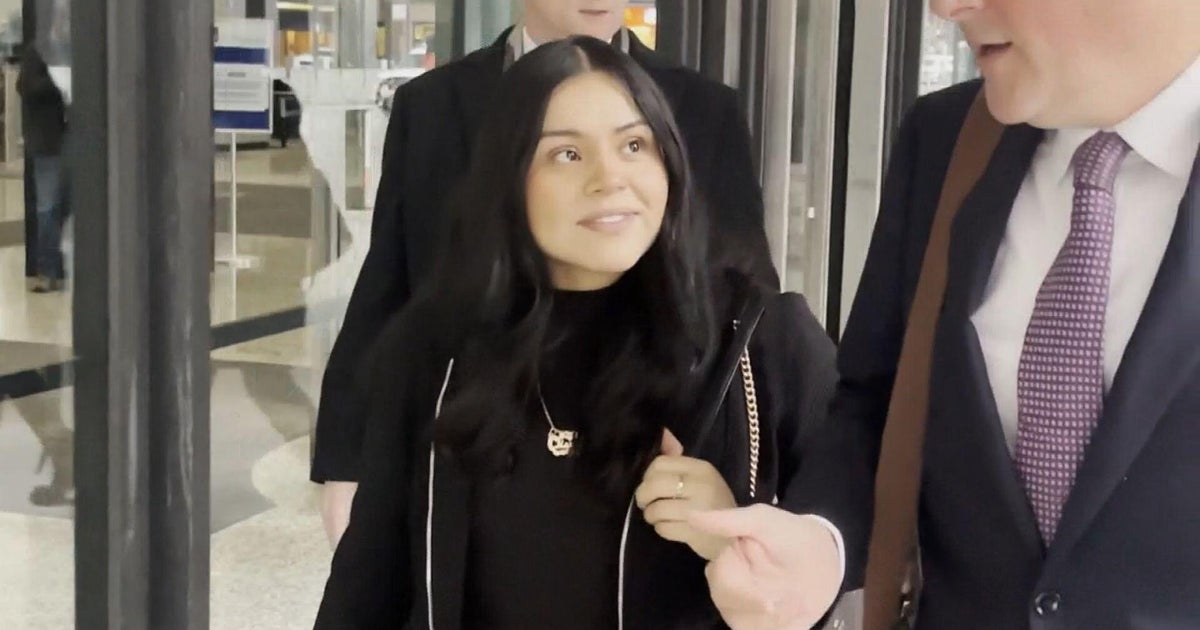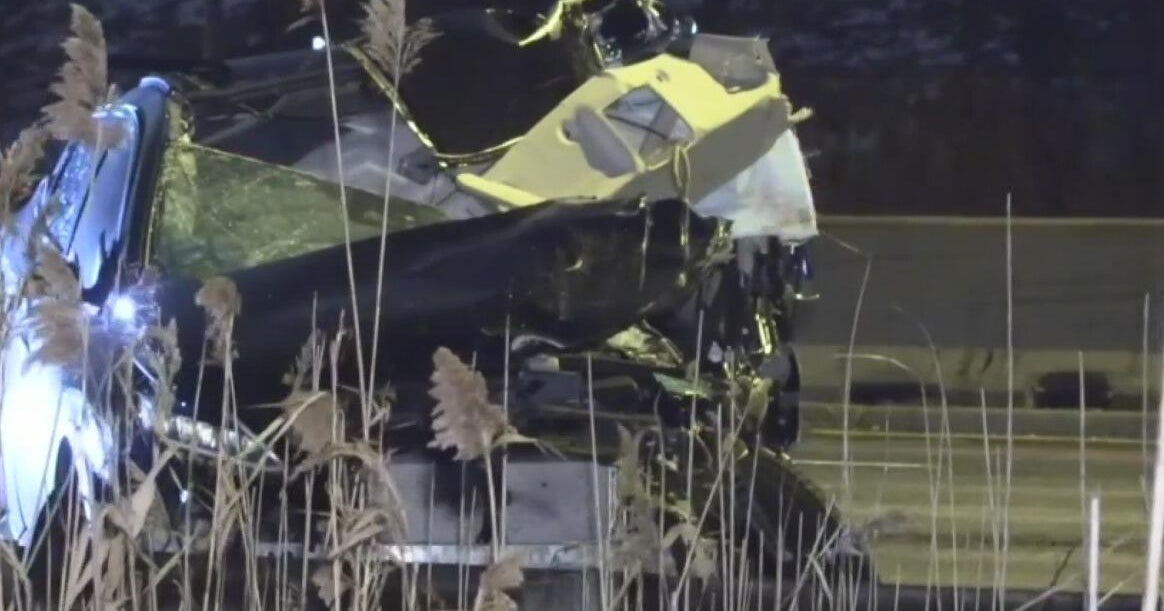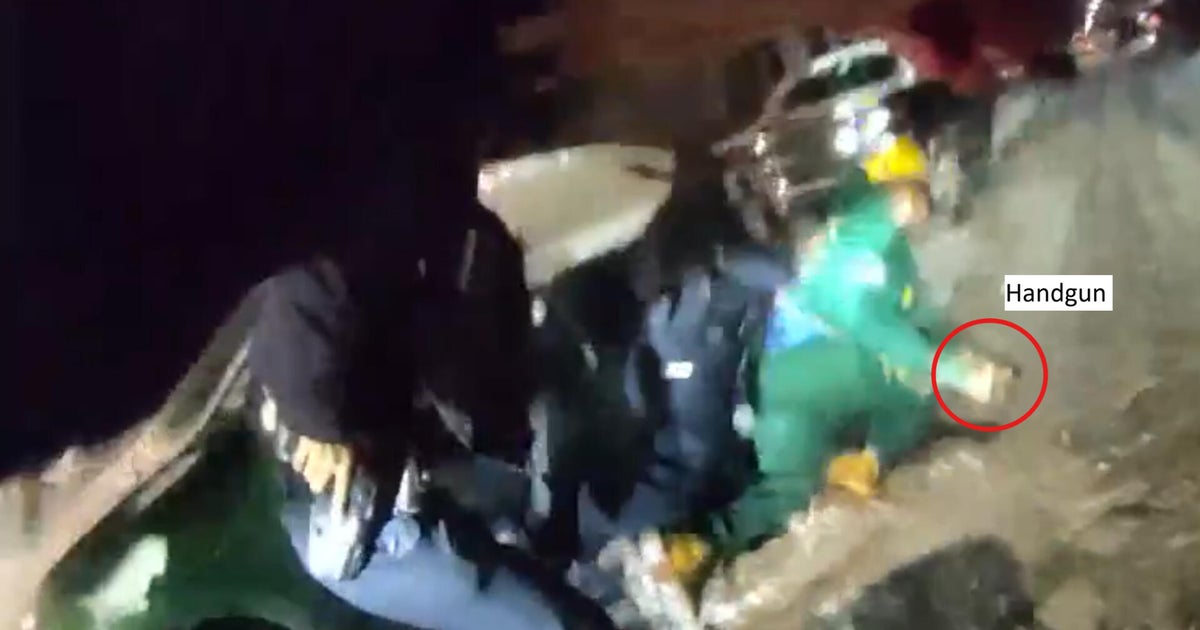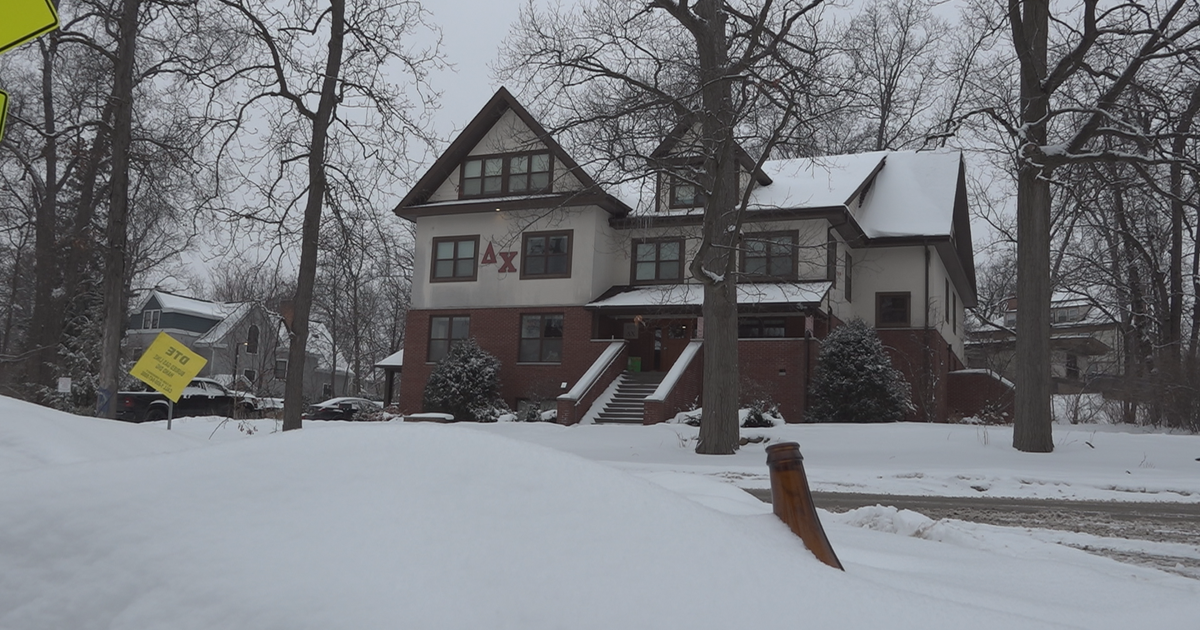Prosecution Rests, Blago's Defense To Begin Presenting Case Monday
UPADTED 05/19/11 4:42 p.m.
CHICAGO (CBS) -- After federal prosecutors rested their case against former Gov. Rod Blagojevich on Thursday, defense attorneys told the judge they plan to begin calling witnesses next week.
Attorney Sheldon Sorosky told the judge that he expects the defense's case would last three to four days, but did not reveal any of the specific witnesses they planned to call.
LISTEN: Newsradio 780's John Cody Reports
Podcast
Sorosky initially asked to wait until Wednesday to begin presenting the defense's case, noting that some of their witnesses are people "of some prominence" and that the defense has been forced to go through those people's attorneys to communicate with them. But Zagel said the defense could start Monday and let their witnesses know the judge expects them to be available to testify.
Outside of court, attorney Lauren Kaeseberg confirmed the defense would put on a case.
"We plan on putting on a defense and proving that Rod is innocent of these charges," Kaeseberg said. "He did not commit any of the crimes to any extent that you've heard the government state in their case."
At Blagojevich's first trial last summer, defense attorneys promised Blagojevich would testify, but then changed their minds and did not present any evidence. They have made no such promises this time.
Defense attorney Aaron Goldstein confirmed they were "strongly considering" having Blagojevich testify, but so far, they were "absolutely, unequivocally 50-50" on that decision.
U.S. District Judge James Zagel plans to meet with attorneys on Friday to discuss the "contours" of the defense's case.
Federal prosecutors rested their case Thursday afternoon after about three weeks of testimony – about half the time it took them to present their case at the first trial.
They significantly streamlined their case for the retrial, focusing largely on allegations Blagojevich tried to sell or trade a U.S. Senate seat. Jurors at the first trial were deadlocked on all but one count, complaining the government's case was too complex and confusing.
Although defense attorneys have not said who they plan to call to the stand starting Monday, Sorosky said some of them are people "of some prominence."
The defense had hinted before the first trial that they might call U.S. Rep. Jesse Jackson Jr., Rahm Emanuel – who just took office as mayor of Chicago – or Valerie Jarrett, a top adviser to President Barack Obama.
Among other allegations, Blagojevich is accused of scheming to get a Cabinet post or other top job from the Obama administration in exchange for appointing Jarrett to the Senate seat. Prosecutors also have said he tried to get Emanuel's help setting up a non-profit that he could run – funded by wealthy Obama donors – in exchange for picking Jarrett.
Blagojevich also allegedly tried to get a $1.5 million campaign contribution from supporters of Congressman Jackson in exchange for giving him the Senate seat.
Before they rested their case, the prosecution's last new witness was former deputy governor Bradley Tusk.
Tusk testified that Blagojevich was holding up a $2 million grant to a school in then-Congressman Rahm Emanuel's district until his brother, Hollywood agent Ari Emanuel, held a fundraiser for the governor.
Tusk was one of the few witnesses who expressed strong concerns that Blagojevich was acting improperly, while many other witnesses appeared to play along with the governor's alleged schemes.
Tusk said that in the summer of 2006, he got several calls from Emanuel's office, asking for help in releasing the grant money for the school.
Earlier in the day, Dr. Donald Feinstein, executive director of the Academy for Urban School Leadership – a charter school based at the Chicago Academy – had testified that the school was told that spring that the $2 million grant had been approved, but months later, they had yet to receive any money.
According to Tusk, when he confronted the governor about the problems with the grant and told Blagojevich that Emanuel was upset the money was being delayed, the governor told him "the grant would not be released unless the Congressman's brother held a fundraiser for him first."
"He wanted me to communicate that to Congressman Emanuel," Tusk said, adding that Blagojevich told him, "Tell Rahm I want a fundraiser; where's my fundraiser?"
But Tusk said he didn't pass that message to Emanuel's office. He said he also called his friend, John Wyma, who had worked as a campaign adviser to Blagojevich and was also close to Emanuel, because he feared Blagojevich would also ask Wyma to pass that message to the congressman.
Tusk said he told Wyma that he wasn't going to pass Blagojevich's message to Emanuel and urged Wyma not to do so either. According to Tusk, Wyma agreed.
On cross-examination, defense attorney Sheldon Sorosky asked Tusk whether the governor ever talked to him again about the school grant after the conversation Tusk already testified about. Tusk said no.
"After that one conversation, did the governor ever once bring up this topic again?" Sorosky asked.
"No, not that I recall," Tusk added.
Sorosky also tried to ask whether the governor ever chided Tusk for not passing on the message to Emanuel about holding a fundraiser, but drew repeated objections from the prosecution.
Sorosky asked if Blagojevich ever told Tusk, "Goddamn it, I told you Bradley to call the congressman to get me that fundraiser?"
But Zagel sustained an objection to the question.
Tusk later acknowledged that he never heard the governor tell anyone but him to reach out to Emanuel to say "Call Congressman Emanuel, we want to have this fundraiser before I release the money for the school?"
Sorosky began to ask another question hinting that the governor's comments about a fundraiser were nothing more than talk, but an exasperated Zagel cut him off, reminding him of previous rulings not to make arguments in the form of questions.
"If you're done with the cross-examination now, just sit down because you're into closing argument," Zagel warned.
Earlier, Feinstein had already testified that the school needed the grant to build an athletic field at the school. After the school was told the grant had been approved, they moved forward with hiring contractors to begin construction, piling up $1.1 million in unpaid bills by September 2006.
As a result, the school was considering taking out a $2 million loan to pay their bills, as some contractors were threatening to stop work on the project.
On cross-examination, Feinstein acknowledged that he wasn't privy to the work being done in the governor's office to get the grant money released to the school.
"As far as you knew, it also took time for the Office of Management and Budget to obtain those funds?" defense attorney Elliott Riebman said.
He also conceded that he never personally spoke to Blagojevich about the grant, nor did he speak to the governor's chief of staff, John Harris, or his deputy governor, Bradley Tusk.
Eventually, the school got $250,000 from the state as a first installment of the grant. Even before getting that money, the school was forced to submit invoices and receipts detailing the costs of the project.
"For each grant we had to provide an expense report, receipts, activities, and complete a new grant agreement," Feinstein said.
Feinstein said he'd been involved in 40 to 50 other government grants, and had never before had a grant paid off in installments, rather than a lump sum, nor had he ever been required to provide invoices or receipts before getting the money.
But the defense has argued it was nothing more than bureaucratic problems that led to the delay in the school getting its grant money.
The school eventually received all of the grant money and neither Emanuel nor his brother held a fundraiser for Blagojevich.
Just before resting their case, a final witness, FBI Special Agent Daniel Cain, showed a series of photographs to the jury, including 14 of the 15 witnesses at the trial, plus photos of Emanuel and Jarrett, who were both targets of alleged shakedown schemes.
Jurors were also given four timelines of various phone calls and recorded conversations that jurors heard during the trial.
One timeline covers any conversations about the U.S. Department of Health and Human Services; Blagojevich allegedly tried to get appointed to that Cabinet post in exchange for naming President Barack Obama's friend Valerie Jarrett to the U.S. Senate.
Another timeline covers any conversations about a non-profit organization; Blagojevich allegedly also tried to get help from the Obama administration to run a non-profit group funded by wealthy Obama donors in exchange for the Senate seat.
A third timeline covers any conversations about Congressman Jesse Jackson Jr. or two of his fundraisers, Rajinder Bedi and Raghuveer Nayak; Blagojevich was allegedly plotting to get a $1.5 million contribution from Nayak in exchange for appointing Jackson to the Senate seat.
The fourth timeline covers any conversation about legislation to benefit Illinois racetracks; Blagojevich was allegedly delaying his signature on that legislation in order to squeeze a racetrack owner for campaign cash.
Prosecutors also showed the jury copies of Blagojevich's oath of office when he was sworn in for his two terms in 2003 and 2007, then played video recordings of Blagojevich taking the oath both times, pledging to uphold the Illinois and U.S. Constitutions.
Todd Feurer, CBS 2 Web Producer

